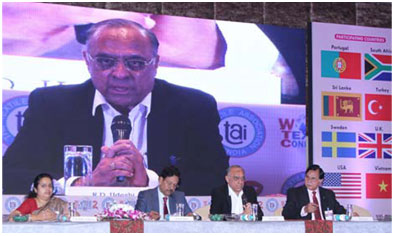FW
The US is very likely to pull out of the Trans-Pacific Partnership trade deal.
But the deal is worth it. The other eleven signatories should try to make a go of it.
A TPP without the US is still a lot better for Japan and the other partners than no TPP at all. A TPP would establish rules and standards that would benefit its members, including protections for labor, the environment, intellectual property and digital commerce. The reforms required under the deal would make their economies more competitive and efficient. Their export industries will still gain from expanded trade; their consumers will still gain from cheaper goods.
Even without the US, the TPP would put allies such as Japan, Singapore and Australia, rather than China, at the forefront of trade liberalization, giving other nations an alternative to which they can aspire. By deepening the integration of Asia’s economies, the pact would promote stability in a critical and volatile region.
Eventually, as the benefits of a TPP become evident, the US might have second thoughts and come back into the fold. The best way for the US to maintain its decades of influence in the Asia-Pacific region is to integrate the world’s biggest economy with the world’s fastest-growing markets.
For the first time ever, Messe Frankfurt will present the Digital Textile Micro Factory in the digital print technology segment at the upcoming Heimtextil, a leading trade fair for home and contract textiles to be held from January 10-13 next year. As a part of this, the presentation that has been set up in collaboration with the German Institute for Textile and Fibre Research and in partnership with renowned representatives from the industry, a digital production chain will be showcased live on site.
With its new location in hall 6.0, the digital print technology segment will be given more space in a central area of the exhibition site, organisers said. Leading printer manufacturers from across the world will present their innovations and technologies for the textile segment here. With more exhibitors and more surface area than last year, this segment will grow for the fifth time in a row at the upcoming Heimtextil.
From design and digital printing to cutting and confection, visitors will experience completely networked production of textiles. The digital networking of the production steps within the Micro Factory ensures optimal material consumption, quicker processing time for orders and the highest level of flexibility to enable producers to react to market needs in a short space of time.
Following a specified path with various different stations portraying the manufacturing steps undertaken in textile production, visitors can walk through the Micro Factory. Experts would be on hand to explain technical details and answer questions.
Amidst tensions across the border, Pakistan’s undeclared suspension of cotton imports from India is not likely to affect shipment of the fibre from India. Exporters see cotton shipments to be in the range of 5.5-6 million bales (of 170 kg each) in 2016-17.
Further, as local cotton prices provide parity with international prices, Indian cotton exporters see brighter opportunities in China and other promising markets such as Vietnam, Indonesia and Brazil. Ahmedabad-based cotton expert Arun Dalal maintained that in spite of Pakistan’s suspension of imports of cotton, the exports of this commodity would remain in the range of 5.5-6 million bales this year. There is good demand from other importing countries such as Vietnam, Indonesia and Brazil, besides China. Therefore, we do not see a significant drop in exports, he maintained.
Currently, international prices are been seen hovering in the range of 73-75 cents per pound which works out to about Rs. 38,500 per candy (of 356 kg each). Right now, domestic cotton prices are in the range of Rs. 38,100-39,100 a candy.
Present cotton prices are almost at par with international prices. There was a short-term spike in prices recently but that is coming back to normal and it is expected that there would be a downward trend as supplies increase.
Pakistan, which consumed close to 40 per cent or about 2.7 million bales of India’s total 6.8 million bales of cotton exports last year, was expected to import about 1.5 million bales this year. India’s cotton crop is estimated to come in at 34.5 million bales, a little higher than last year’s 33.7 million bales. Considering the higher crop, prices are likely to be range-bound as arrivals hit the markets.
Cotton USA, that promotes US. cotton fiber and manufactured cotton products around the globe, is gearing up to promote US cotton’s quality, responsible production and innovation at leading trade show for home textiles ‘Heimtextil’ in Frankfurt, from January 9 to 13 next year. It will seize the opportunity to offer sourcing support to the global home textile industry.
As an added incentive to the hospitality industry, Cotton USA will also introduce its new hotel and travel initiative that connects its licensed manufacturers with the hotel sector to provide U.S. cotton-rich bedding and towels. This new initiative Cotton USA will allow hotel partners to specify and highlight their use of US cotton-rich products so that, in turn, their guests can enjoy the safe and comfortable feeling of ‘home away from home’ when staying at a hotel.
For four days, Cotton USA pavilion at Heimtextil will serve as an international meeting point for the entire cotton trade including merchants, mills, manufacturers, brands, retailers and the press. Cotton USA, Cotton Inc and Supima will provide comprehensive information about the global cotton market, sourcing, consumer research, and the marketing/promotional services the US cotton industry offers.
Visitors can learn about the Cotton USA sourcing, marketing and licensing programs and Cotton USA’s collaboration with leading brands and retailers worldwide. Visitors will be able to view innovative product samples from the new collections of international Cotton USA licensees.
As an added boost to Cotton USA, US cotton producers are leading the way in responsible cotton production practices. US cotton is grown under the strongest, mandatory, enforceable and sustainable farming regulations that include long-term land conservation and lower water usage. The US system’s transparency allows for constant monitoring and improvement.
Intense competition has brought the focus on soft and life skills not only for professional careers but also for personal advancement. This view was expressed by Shalini Sharma, Principal, Apparel Training & Design Centre (ATDC), while addressing the ‘Life &Soft-skills’ workshop conducted by Deloitte professionals in Gurgaon. More than 150 students of ATDC Gurgaon, Rohini, Dilshad Garden centres attended the workshop.
In order to get a winning edge over competitors, people are left with no choice but to add value to their hard skills with soft skills to realise one's true potential, she observed. Keeping the need of the hour in mind, ATDC organized a special workshop on ‘Interpersonal & Soft Skills’ for the students, she added. ATDC is India’s largest vocational training provider for the apparel sector.
The objective of conducting this workshop was to develop and strengthen especially the communication skills of students. Deloitte professionals worked towards providing guidance and direction to students of ATDC for a successful career by leveraging their potential for better career prospects. The highlights of the workshop were time management, interpersonal skills, and resume preparation and interview skills under their ‘counselor’ thread.
India is second only to China in textiles and apparel industry. But most of the textiles produced in the country is channeled towards garmenting and only 10 per cent is for other applications including home textile. To boost the industry further, India has to improve applications of different fibers. In an exclusive interview, R D Udeshi, President, Polyester Value Chain, Reliance Industries, speaks to Fashionatingworld about the issues confronting the textile sector today and what is the way ahead.
Do you think India’s textile production targets are feasible?
The total textile production is $110 billion. The government’s target is to touch $650 billion by 2025. However, 10 years is too long a period. Let’s look at a realistic target. We don’t know what will happen in 10 years. Maybe it’s better to aim for $300 billion in five or seven years. Out of this, domestic should be $200 to $210 billion and exports $100 or $110 billion. To achieve this target, we should spend on R&D, develop product application centers, create skill development programs, build new design institutes which will provide innovative fabrics, improve automation, improve the weaving capacity, have better technology looms, improve processing capabilities, have a center of excellence for knowledge sharing. The industry should think big and create an efficient cost structure.

Exporters should participate in trade fairs, have buyer seller meets. We need a fiber neutrality policy. Textile parks should be encouraged. Buyers should have all products under one roof. Infrastructure facilities should be created. Finance should be made available at international interest cost.
What are the thrust areas?
In India, 90 per cent textiles are for garmenting and 10 per cent for other applications including home textiles. Globally, it is divided half and half, 50 per cent for apparels and 50 per cent home textiles. Since India has to reach this level overall fabric production is likely to be better than what it is today. India has to improve applications of different fibers. This includes geo textiles, currency note applications, wallpaper applications. Once this happens there, will be a spurt in fiber consumption, non woven applications, non apparel applications.
Our per capita consumption is very low. So there is scope. The lower income group is entering the middle income. The median age is 26, purchasing power is improving. Clothing needs have grown. This incremental consumption will drive the domestic market. India’s annual fabric imports are almost $850 million assuming they are under invoiced. The real value is about two to three times more. So that’s a huge number. That comes to $2.5 billion. Cheap imports of fabrics should be prevented. Also fabrics are cleared at lower customs duties. This should be stopped. In India manmade fiber has always been treated as a rich man’s fiber and cotton a poor man’s fiber. Manmade fiber is seen as a revenue earner.
Is China a formidable competitor?
India used to compete with China. Now India is competing with Sri Lanka, China, Bangladesh, Vietnam. China is the biggest competitor. But labor cost in China is three times that of India’s and power cost is ten cents a unit in China. So, India is competitive in power and labor. The market is evolved. India has skills, a strong legal structure, financial capability, technical expertise, raw materials like cotton and manmade fiber.
China imported a lot of cotton yarn because they created a floor price for raw cotton. Raw cotton was more expensive than cotton yarn. That gave opportunities to Indian manufacturers and the spinning industry to export cotton yarn. They thought there was a big market. For the Chinese, it was a make or buy decision. Buy was cheaper than make. But then the floor price was removed. In future, I don’t think they will buy as they Chinese have enough spinning capacity. If they get cotton at international prices, without an artificial floor price, they would be quite efficient at production. Cotton prices in India are lower than international cotton prices. I feel that with the new cost structure in China, India has the chance to take a big portion of Chinese exports. People don’t see much stability in Vietnam or Bangladesh. We have a language advantage. But we should meet quality standards, meet the supply chain capability.
Will GST streamline procedures?
Once GST comes in, all fibers may be treated equally. The duty will be the same, whether cotton, viscose or filament based. Customers can select the appropriate fiber. GST will place fabrics on an equal footing. There is no bias in terms of duty. We have excise on polyester raw material and on polyester. We have exemption on spun yarn and on fabric. So the chain is broken. With GST, exemptions will be withdrawn. So you keep paying tax on the value you add.
What significant changes will FDI bring in?
I think 100 percent FDI will also help. It’s not so much about money. Someone will bring in innovative fabrics, marketing expertise. Once you have a financial commitment through FDI, the rest of the things will follow. In India most of us sell products through a trader. I don’t think we understand the market. Once you interact with the customer you know about design and pattern changes. So the production cycle changes based on that. Today everything is based on hearsay. India should first become a manufacturing hub of a commodity product. The next stage is to improve through innovation. The third stage is to brand your product. The fourth step is to go global.
"The key areas of growth in the first half of 2016 was: the higher value areas of the market performed well with high and industrial speed segments seeing output growth of above 35 per cent, as Indian dyers looked to continue investing in new equipment. Non-textile companies also saw the long-term potential of the industry and were willing to invest. Not only has growth in output been high, the increase in physical machinery sales in this higher value end of the market has also been impressive with 52 new models installed in the first half.
In general, India remains a high potential market for digital textile printing with both a large traditional textile market and a rapidly growing economy where investors are looking to drive growth. Increased competition is expected to put pressure on Indian printers and 2017 is expected to be a period of consolidation with growth slowing down to 20 per cent as the market adjusts to its new capabilities."

India’s digital textile printing segment has maintained its double digit growth trajectory through 2015 and 2016. However, growth is expected to slowdown next year consolidation happening in the markets, predicts a WTiN Intelligence study
Following a successful 2015, the first six months of 2016 have also been extremely positive for the Indian digital textile market. High growth across all areas and steady machinery sales, have helped boost output capacity to 54.1million sq. mt. of fabric. This 34 per cent rise for the first half of 2016 is similar to the figures seen in 2015, thanks to continued machinery investment across the sector as the textile industry continues to develop and the economy remains strong.
The key areas of growth in the first half of 2016 was: the higher value areas of the market performed well with high and industrial speed segments seeing output growth of above 35 per cent, as Indian dyers looked to continue investing in new equipment. Non-textile companies also saw the long-term potential of the industry and were willing to invest. Not only has growth in output been high, the increase in physical machinery sales in this higher value end of the market has also been impressive with 52 new models installed in the first half. Most of these higher-end models were from Italy-based manufacturers who are competing fiercely both with pricing and servicing to establish a stronger position in the Indian market. However, we have also seen Chinese manufacturers gaining ground. For Chinese companies offering high-end machinery, India is the primary export market where they have recently performed as well as their European counterparts.

This has also been supported by wider activity lower down the value chain. Looking specifically at the low speed segment, India’s large business base and growing middle class, who are increasingly setting up small businesses and providing a growing customer base, allows entry level digital textile printing to continue to grow in India. Over the last six months, 84 new dedicated textile models operating at lower speeds were sold, allowing the large part of the Indian market to grow by 31 per cent. While the numbers look smaller than in 2015, the price point of such machines is slowly creeping up. In 2015, the majority of models sold were between $10,000 and $25,000 but so far this year, while this price band is still popular, we are seeing more entry level activity at $35,000 and up. Similar to 2015, while Epson DX5 heads remain popular thanks in part to domestic and Chinese company sales, we have seen an increase of 45 per cent in output for machines using less common print heads such as Panasonic.
Looking at the positive activity seen so far in 2016 and the forecasted sales in the second half of the year, our early prediction of 28 per cent growth for the full year looks accurate. However, with a slightly better performance in the industrial segment, we are raising our forecast to 30 per cent for 2016. We still expect a gradual slowdown in growth due to the size of Indian market. Also, certain companies will now be only looking to buy when their traditional rotary machines reach their end of life. This is true for industrial speed machinery. Therefore, in future, sales in high speed segment remains important with a further 20 machines expected to be sold in the second half in this high-value area.
In general, India remains a high potential market for digital textile printing with both a large traditional textile market and a rapidly growing economy where investors are looking to drive growth. Increased competition is expected to put pressure on Indian printers and 2017 is expected to be a period of consolidation with growth slowing down to 20 per cent as the market adjusts to its new capabilities. We expect to see one or possibly two new industrial machines during this year helping to boost high speed production but with high and low speed segments still dominating physical sales.
"A new research on fashion trends and textile waste, named ‘‘Timeout for Fast Fashion’ was released by Greenpeace on the eve of Black Friday. The report highlights the serious environmental consequences of over-consumption. Clothing is among the most sold products on the annual shopping day promoted in many countries. This, critics say, encourages impulsive overspending and unnecessary purchases through ‘bargain’ offers and discount prices. "

A new research on fashion trends and textile waste, named ‘‘Timeout for Fast Fashion’ was released by Greenpeace on the eve of Black Friday. The report highlights the serious environmental consequences of over-consumption. Clothing is among the most sold products on the annual shopping day promoted in many countries. This, critics say, encourages impulsive overspending and unnecessary purchases through ‘bargain’ offers and discount prices.
Fashion the biggest polluter

Deliberating on the topic, Kirsten Brodde, Head, Greenpeace’s ‘Detox my Fashion’ campaign said that it was difficult to resist the allure of a good bargain but fast fashion means that people are consuming and trashing fashion at a higher rate than our planet can handle. To counter excessive consumerism, growing numbers of people choose to abstain and observe ‘Buy Nothing Day’ instead.
As a part of this movement, trash queens in dresses recycled from discarded clothes are being sold at shopping centres in three major cities in Asia and Europe. The main reason for this initiative is to remind customers how many impulse buys of today end up as trash tomorrow. As of today, recycling is not a solution. Markets are overloaded with unwanted clothes [2] and technological challenges mean full recycling of clothing into new fibres is still far from commercially viable. Brodde points out their research indicates the second hand clothing system is on the brink of collapse. Fashion brands need to urgently re-think the throwaway business model and produce clothing that’s durable, repairable and fit for re-use. As consumers, one also hold the power. Before buying the next bargain item, one can all ask ‘do I really need this?’.
The research, published by Greenpeace Germany, shows how the fast fashion business is rapidly expanding; clothing production has doubled from 2000 to 2014 with sales rising from $1 trillion in 2002 to $1.8 trillion in 2015 and a forecast of $2.1 trillion by 2025. The average person buys 60 per cent more items of clothing every year and keeps them for about half as long as 15 years ago, producing immense volumes of textile waste.
Environmental impacts that have been detailed in the report include chemicals from textile factories polluting rivers and oceans, high levels of energy use and pesticides from cotton growing contaminating agricultural land. One of fast fashion’s biggest costs to the planet comes from the rising use of synthetic fibres, particularly polyester that emits nearly three times more CO2 in its lifecycle than cotton, according to Greenpeace. Already present in 60 per cent of clothing, polyester can take decades to degrade, as well as polluting marine environments with plastic micro fibres.
Since 2011, Greenpeace’s Detox campaign has gathered support from 78 companies including fashion brands, retailers and textiles suppliers to achieve zero discharges of hazardous chemicals in the manufacturing supply chain by 2020 and many are making progress towards this goal. However, if the trend for more and cheaper clothing continues, any gains that are made on eliminating hazardous chemicals will be outstripped by higher rates of production and consumption in the industry as a whole.
Most WTO members want an outcome of domestic support for cotton to be a priority for the Buenos Aires Ministerial conference in December 2017, the chair of the agricultural negotiations, Vangelis Vitalis, Ambassador of New Zealand reported during WTO’s latest consultations on cotton. Welcoming recent submissions and intense debates among members, Vitalis confirmed that none of the new submissions enjoyed a consensus so far.
The Nairobi Ministerial Conference in December 2015 marked an important step to arrive at a negotiated global solution for cotton, the Cotton-4 group of countries said at the meeting. However, as noted at the last dedicated discussion in July, they regretted the lack of progress so far particularly on issues where no binding commitments were made in the Nairobi conference. Vitalis reiterated that for the overwhelming majority of WTO members, an outcome on domestic subsidies for farmers at the 11th Ministerial Conference in December 2017 should include a decision on cotton. The consultations on cotton included the sixth dedicated discussion of trade-related developments for cotton and the 26th session of the DG’s Consultative Framework Mechanism on Cotton.
The importance of achieving an outcome on cotton at MC11 was also emphasized by ministers at a meeting in Oslo, Norway, on October 21 and 22 and at a meeting of the Cotton-4 ministers on 26-28 of the same month in Bamako, Mali. The Cotton-4 said that the Bamako Ministerial Declaration made an urgent appeal for the elimination of all forms of export subsidies and domestic support for the production and marketing of cotton before MC11.
VF Corporation does responsible supply chain management. As one of the pioneers of outsourced manufacturing, VF has policies designed to stamp out underage working, forced labor and similar abuses in supplier factories. VF takes a hands-on approach throughout the product cycle, from procuring the raw materials right through to providing customer service. Its effort at collecting data on key performance indicators is mostly geared toward internal improvements.
The corporation, based in the US, has two dozen or so major brands (including icons such as Wrangler, Lee, The North Face and Timberland), a 60,000-plus staff and nearly 1000 contract factories producing over 1.3 million items a day across almost 50 countries.
The sourcing program has four main focus areas: worker well-being, sustainable living environments, environmental sustainability and product stewardship. Environmental sustainability encompasses a wide range of activities to make supplier factories more water and energy efficient. Product stewardship is a program to promote safe chemistries as well as to trace raw materials such as cotton, leather and rubber back to their original source. The sustainable operations unit has 36 personnel in 13 countries. It advises factory owners in Bangladesh on a remediation plan.
The company has also launched a stand-alone website that details its supply-related policies and practices.













